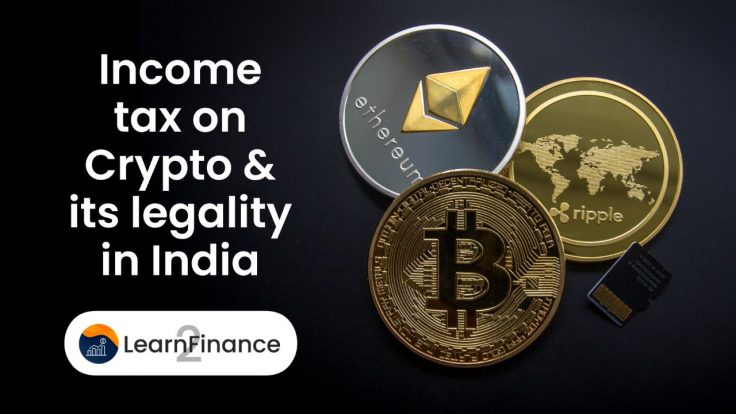What are Cryptocurrencies?
A cryptocurrency is a digital or virtual currency that is protected by encryption, making counterfeiting or double-spending almost impossible. Many cryptocurrencies are decentralised networks built on blockchain technology, which is a distributed ledger enforced by a network of computers. Cryptocurrencies are distinguished by the fact that they are typically not issued by any central authority, making them potentially resistant to government meddling or manipulation.
Cryptocurrencies are online payment systems that are denominated in terms of virtual “tokens” that are represented by ledger entries inside the system. The term “crypto” refers to the encryption methods and cryptographic techniques used to protect these entries, such as elliptical curve encryption, public-private key pairs, and hashing functions.
However, one should be aware that, as of today, crypto is not centrally controlled or regulated by any single agency, such as the RBI, which manages real currency in India. In fact, peer-to-peer bitcoin transactions are managed using blockchain technology, which acts as a public record for all transactions.
Where do Cryptocurrencies come from or how is it generated?
Mining:
- Mining is an activity in which a person (referred to as a “miner”) utilises his computer skills to solve computational challenges. The act of solving such riddles, which are essential to blockchain technology, aids in its upkeep. As a reward, the miner receives fresh bitcoins/crypto, which is nothing more than the production of a bitcoin or mining.
Buying them at a currency exchange in exchange for actual money:
- Everyone can not be a miner. As a result, you might consider purchasing cryptos from exchanges and storing them in digital form in an online wallet. Unicorn, Bitxoxo, Coinbase, and other bitcoin exchanges are now available in India. Such cryptos would be acquired in exchange for actual money.
It is worth noting that the current value of one bitcoin is about INR 32,32,663.
Receiving cryptocurrency in exchange for selling products and services:
- Though this is not a regular occurrence in India at the moment, there are a few clever merchants that take bitcoins (rather than actual cash) for the sale of goods or services.
Is it legal to use cryptocurrency in India?
As previously stated, bitcoin as a payment medium has not been sanctioned or regulated by any governmental body in India. Furthermore, no clear rules, laws, or guidelines for addressing conflicts that may arise while dealing with bitcoins have been established. As a result, bitcoin transactions have their own set of dangers.
However, given this context, one cannot assume that bitcoins are unlawful, as there has been no prohibition on bitcoins in India thus far. The Supreme Court of India, in a judgement issued on February 25, 2019, ordered the government to develop cryptocurrency regulatory regulations.
In India, how are cryptocurrencies taxed?
Because the idea of cryptocurrencies is relatively new to the Indian market, it appears that the government has not yet included the taxability of bitcoins into the law books. At the same time, the imposition of a tax on bitcoins cannot be ruled out because Indian income tax rules have traditionally attempted to tax income received regardless of its form.
As a result, the idea of taxing bitcoins might be considered under the following conditions:
Scenario A: Mining
As an example, consider bitcoin.
Bitcoins earned through mining are self-created capital assets. In the normal run of events, the subsequent selling of such bitcoins would result in financial gains.
However, because bitcoin is a self-generated asset, the cost of acquiring one cannot be defined. Furthermore, it is not covered by Section 55 of the Income-tax Act of 1961, which determines the cost of acquiring some self-generated assets.
As a result of the Supreme Court ruling in the case of B.C.Srinivasa Shetty, the capital gains computation process collapses. As a result, there would be no capital gains tax on bitcoin mining.
This stance will be maintained until the government considers amending Section 55 of the Act.
Given that Indian tax rules are totally quiet on the taxability of bitcoins at this point, we considered it appropriate to remark on a possible alternative opinion by the income tax authorities. There is a chance that the department will not consider bitcoins to be capital assets at all.
As a result, the capital gains clauses would be null and void. As a result, income tax authorities may elect to tax the value of bitcoins obtained through mining under the heading “Income from other sources.”
Scenario B: Invested Bitcoins are transferred in return for actual currency:
If bitcoins, which are capital assets, are held as an investment and then transferred in exchange for real money, the growth in value will result in either a long term capital gain or a short term capital gain, depending on the length of time the bitcoin was held.
Long-term gains would also be taxed at a flat rate of 20%, whilst short-term gains would be taxed at the individual slab rate. The cost of purchase for calculating long-term capital gains will be computed once indexation is applied.
As a result, the income tax authorities may elect to tax bitcoin earnings under the heading “Income from other sources.”
Furthermore, if the income is taxed under “Income from other sources,” the person must pay taxes at the rate appropriate to the tax slab in which he falls.
For example, if his taxable income reaches Rs 10 lakh, he will be due to a tax of 30%, as opposed to the flat rate of 20% he would be obliged to pay if charged to tax under long-term capital gains. The benefit of indexation that would be available if capital gains were taxed would also be unavailable if income from other sources was taxed.
Scenario C: Bitcoins held as a stock-in-trade are exchanged for actual currency:
The revenue generated by bitcoin trading activity would be considered business income, and the profits generated by such a firm would be subject to taxation at the individual slab rates.
Scenario D: Bitcoins are received as payment for the sale of goods and services:
Bitcoins received in this manner will be treated in the same manner as money. It would be considered income in the recipient’s hands. Furthermore, because the receiver earned this money through a company or profession, he would typically be taxed under the heading earnings or gains from business or profession.
There is still a lack of clarity on the disclosure required for bitcoins in income tax return forms. In his budget address for 2018, our Finance Minister, Mr Arun Jaitley, remarked, “112 Distributed ledger system or blockchain technology permits the organisation of any chain of data or transactions without the need for middlemen.” The government does not consider crypto-currencies to be legal currency or coin, and will take all necessary steps to prevent their use in financing illicit activities or as part of the payment system. The government will vigorously investigate the use of blockchain technology to usher in the digital economy.
”Furthermore, the Central Bank has chosen to reiterate its previous message to “users, holders, and traders of Virtual Currencies (“VCs”), including bitcoins, regarding the potential economic, financial, operational, legal, customer protection, and security risks associated with dealing with such VCs.”
As a result, given that bitcoin transactions are gradually increasing in India despite the lack of laws governing them, we are hopeful that the government will issue a notification soon to clear up the ambiguity surrounding the legality of bitcoins, their taxability, and the disclosure requirement of bitcoins.
So, what should you do now?
To begin, you must ensure that you keep accurate records of all your transactions. Second, keep in mind that these assets are unregulated in India, thus holding or dealing in them carries a significant level of risk. You must, however, pay taxes if you have earned an income. Seek the assistance of an expert who can guide you through the process. You may have developed a self-generated asset if you are a miner. Miners also invest a significant amount of time and money in the construction of these assets, thus taxes may be a whole other ballgame in their situation.








